Dr. Suzan Amedi
Since its inception amid the confrontation with ISIS, the Popular Mobilization Forces (PMF) have formed a cornerstone of Iraq’s security and sovereignty equation. With the imminent conclusion of the international coalition’s mission in Iraq, the PMF’s file returns to the forefront, laden with major challenges and existential questions about its future and role within the state. Will the government move toward reforming this institution and integrating its operations within the framework of the state, or will regional and international pressures impose scenarios of exclusion and disbandment? Between the hammer of internal balances and the anvil of regional conflict, Iraq today stands at a sensitive crossroads that will shape the features of the coming stage.
Amid these complexities, opinions differ between those who see the necessity of integrating the PMF into the official armed forces to ensure the unity of security decision-making, and those who warn against losing a proven experience in confronting major threats. At the same time, the internal and external concerns about the continued existence of armed formations outside the traditional frameworks of the state cannot be ignored. These concerns fuel calls to reduce the PMF’s influence or dismantle it, opening the door to new political and security crises that could drag Iraq back into instability.
Further complicating the scene, some PMF factions have come under external orders, particularly from Iran, playing roles that exceed Iraq’s national boundaries. They have been involved in military interventions in Syria and have repeatedly attacked coalition bases, subjecting Iraq to additional international pressures. Moreover, these factions have contributed to destabilizing security in the disputed territories under Article 140 of the Iraqi Constitution, alongside their continuous harassment of the Kurdistan Region, exacerbating internal divisions and undermining efforts toward calm and national stability.
Conversely, there remains a real opportunity for the Iraqi government to lead a comprehensive reform process of the PMF that preserves its national role and reorganizes it in a manner consistent with building a strong institutional state. Establishing loyalty solely to the state and restructuring leadership and discipline under legitimate authorities constitute the cornerstone of any successful path forward. Preserving the gains of the battle against terrorism does not contradict the necessity of framing all forces under the state’s umbrella; rather, it reinforces Iraq’s position as a capable, sovereign state that manages its security independently, free from foreign interventions and impositions.
With the end of the international coalition’s mission, Iraq faces a sensitive national challenge in managing the PMF file with wisdom and foresight. Between calls for integration and reform, and pressures for exclusion and dismantlement, the greatest challenge remains to preserve the unity and prestige of the state without undermining the sacrifices of thousands of fighters who contributed to defeating terrorism. Addressing the PMF’s future must not be subject to external dictates or narrow calculations; rather, it should stem from a comprehensive national vision that lays the foundations for a strong institutional state capable of incorporating all its forces within the framework of legitimacy and sovereignty.





